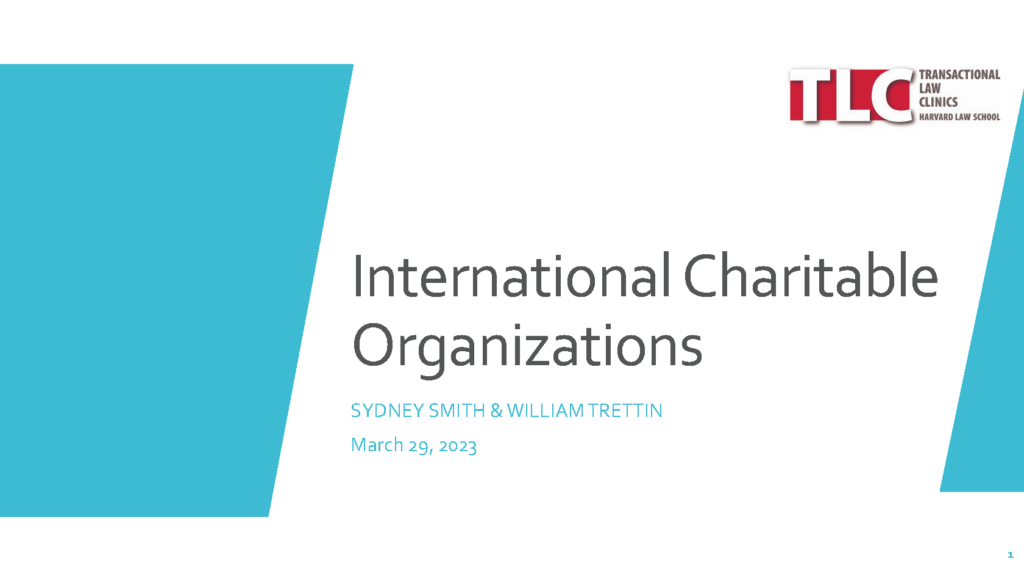[Originally Published January 10, 2018, on the Clinical and Pro Bono Program blog]
By Alex Glancy, J.D. ’19

Caption: Alex Glancy (J.D. ’19) and Michael Trujillo (J.D. ’18) present to a group of community leaders and small business owners in Jamaica Plain about commercial lease basics. This workshop was co-hosted by the Jamaica Plain Neighborhood Development Corporation (JPNDC).
On a winter afternoon, I met with Mehedi* at CVC Unidos, a community center in Boston’s Dorchester neighborhood. Mehedi is a convenience store owner. He has a bright smile and will never let you leave without offering you a soda or water bottle. He was opening a second convenience store and had recently received the lease for that property. CEP was holding office hours, and he came to get legal advice. He handed me the 6-page unsigned lease agreement, filled with dense contract language. I took a deep breath and started reading.
As Mehedi waited for my opinion on his lease, he asked, “So did my landlord give me a good lease?” I began scrutinizing Mehedi’s lease. I noticed a problem. The lease contained a subordination provision, which meant that his lease could be terminated if the landlord’s mortgage lender ever foreclosed on the property. “You could lose your lease if your landlord defaulted on his loan,” I explained. This was a risk Mehedi did not want to take.
During my time in the Community Enterprise Project (CEP), we developed a presentation and corresponding Commercial Leases 101 Toolkit designed to assist small businesses in Boston and Somerville. To develop these materials, we met with numerous community partners, canvassed commercial districts in Boston (such as the Bowdoin-Geneva area, where I first met Mehedi), and consulted with experienced clinical instructors familiar with real estate law.

Caption: This is a flyer for one of numerous commercial lease workshops held around Boston during Fall 2017. We distributed the flyer throughout Dorchester. This workshop was co-hosted by the Dorchester Bay Economic Development Corporation (DBEDC)
Unlike residential tenants, commercial tenants have virtually no rights outside of their lease. Any rights are described in the lease agreement, so it is important to sign as good a lease as one can. How can small-business owners, especially the poor or non-English speaking, sign better commercial leases? In navigating the Wild West of commercial real estate, they could use attorneys. But even more crucially, they need community organizations that fight for increased economic and political power. We designed our project to assist small business owners one on one, and also to lay the groundwork for systemic change in the ongoing defense against gentrification.
A transactional lawyer is a luxury for the majority of small businesses, including those in low-income communities facing more pressing legal issues, such as lack of housing or public benefits. Retaining a lawyer might seem so unattainable that the thought does not even cross one’s mind. Although transactional lawyers might seem like last priority, their impact can be long lasting. A transactional lawyer knows that you never know until you ask, and can suggest minor changes that make a big impact. As a first step, transactional lawyers remind clients that a contract is a two-way street, with room to create solutions that will benefit both sides.
At the conclusion of our meeting, we advised Mehedi to add a “non-disturbance” provision to his lease, so that the landlord’s mortgage lender could not unilaterally terminate Mehedi’s lease. We also advised Mehedi to delete certain ambiguous provisions. Mehedi planned on signing the next day, and he walked away jolly knowing that he would be better protected. Small business owners like Mehedi should negotiate their leases in this manner.
With rents on the rise, however, a landlord might not be willing to negotiate. Increasingly, landlords are commercial developers with whom it is difficult to forge a personal relationship. In fact, the majority of land in Boston is owned by a handful of these developers.
Thus the community-wide effort to resist displacement is crucial. We often catered our workshops to community organizers working on these systemic issues. In the case of recent evictions of El Embajador Restaurant and De Chain Auto Service, JPNDC and City Life/Vida Urbana, among others, created a campaign to resist displacement of these neighborhood businesses.
A long-term solution will be city or statewide legislation to create more statutory rights and protections for commercial tenants. Students in CEP next semester are planning to collaborate with community groups to devise such a policy proposal and help these community groups push proposals through Boston’s political machine. By forming a coalition of community groups, our goal is to help empower the community as they fight for increased economic opportunities.
*Name has been changed to protect confidentiality
 TLC Students Sydney Smith, J.D. ’24, and William Trettin, J.D. ’24, led a workshop about International Charitable Organizations. Sydney and William presented to students at the Social Innovation + Change Initiative, at the Harvard Kennedy School of Government (HKS).
TLC Students Sydney Smith, J.D. ’24, and William Trettin, J.D. ’24, led a workshop about International Charitable Organizations. Sydney and William presented to students at the Social Innovation + Change Initiative, at the Harvard Kennedy School of Government (HKS).

